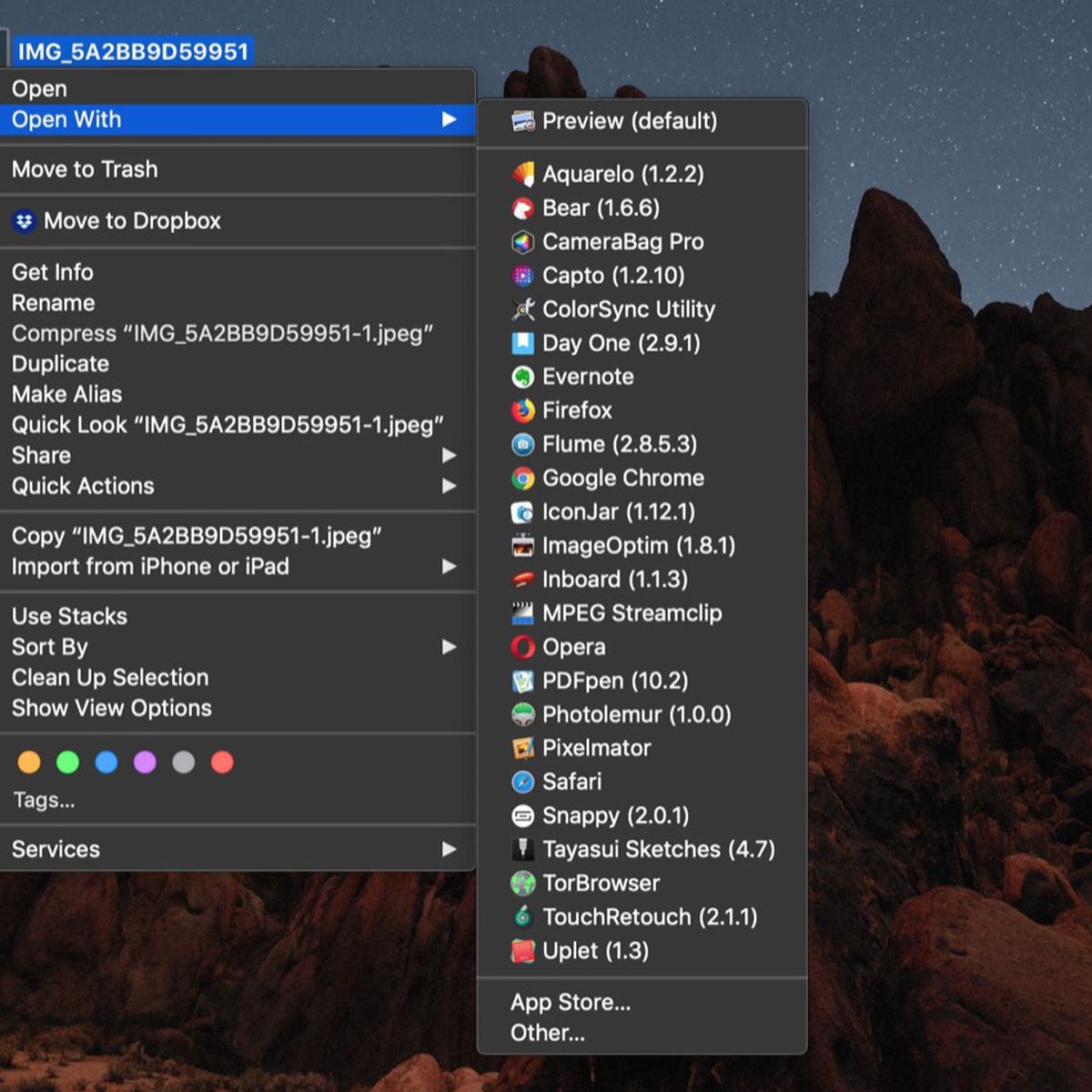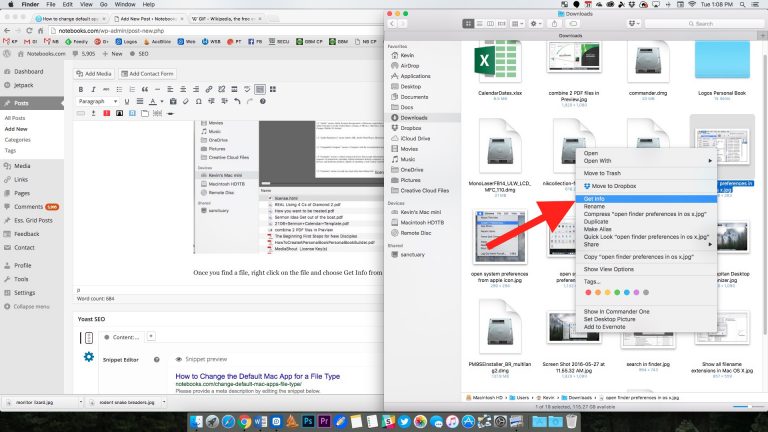

It is available to purchase and download on Mac App Store. It brings better iCloud integration, iMessage support, new notification center, Facebook and Twitter integration and over 200 new improvements.

Mountain Lion was released on July 25, 2012. In the first day of Lion release more than on million copies were downloaded from Mac App Store. It introduces new applications such as Launchpad, Mission Control and FaceTime. codenamed Lion was released on July 20, 2011. For QuickTime Pro users was introduced new QuickTime X. Snow Leopard also supports 64-bit technology capable of supporting greater amounts of RAM.
#Mac file extensions default mac os x
Mac OS X core applications were rewritten in native Cocoa API to take advantage of the new technologies introduced in Snow Leopard. In 2009 Apple introduced the Mac OS X 10.6 Snow Leopard that is only for Intel-based Mac computers. Leopard supports both PowerPC and Intel based Mac computers. Leopard has updated Finder, Time Machine, Spaces and pre-installed Boot Camp.
#Mac file extensions default for mac os x
LeopardĪpple announced about 300 new features for Mac OS X 10.5. Tiger introduced Spotlight, Dashboard, Smart Folders and updated other Mac core applications such as QuickTime or Safari. Tiger was the first version that supports new Intel-based Mac computers. In Mac OS X 10.3 Panther was introduced Exposé window manager, FileVault, Safari web browser and iChat AV.

Mac OS X versions 10.0, 10.1 and 10.2 (Cheetah, Puma and Jaguar) were released to fix errors and add new features to core of operating system. The first version Mac OS X Public Beta codenamed Kodiak was released on 13th September 2000, where was introduced new Mac OS X graphical user interface Aqua GUI with anti-aliasing technology and drop shadows. Mac OS X official releases up to 2016: Kodiak Mac OS X also contains core basic applications for everyday use, such as Finder, Safari, QuickTime, iTunes, iMessage, Mail, Contacts, Calendar, TextEdit, Preview, iBooks, Photos and many more. Mac OS X supports both PowerPC and Intel-based versions of Mac computers, but PowerPC only up to version 10.5. The latest version codenamed El Capitan were introduced in 2015 (version 10.11). Mac OS X is Unix-based operating system for Apple Mac computers released in 2000.


 0 kommentar(er)
0 kommentar(er)
